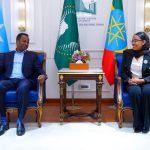One week on from deadly earthquakes vital aid is being held up by disputes between government and rebel groups, as well as wider diplomatic quarrels

The US has called on all parties on the ground in Syria to immediately grant humanitarian assistance to those in need, after last week’s earthquake and major aftershocks that have killed at least 33,000 people.
“All humanitarian assistance must be permitted to move through all border crossings,” a spokesperson for the White House national security council said on Sunday.
The UN has said at least 870,000 people urgently need hot meals across Turkey and Syria, and in Syria alone up to 5.3 million people are reportedly homeless. Turkey has said 80,000 people are in hospital and more than 1 million are in temporary shelters.
Tens of thousands of rescue workers continue to scour flattened neighbourhoods despite subzero winter weather. A dwindling number of survivors are still being extracted from the rubble more than a week after the quake hit.
Of the 3,500 deaths reported in Syria the bulk have been in the north-west of the country, in areas predominantly under rebel control.
The region has so far received little assistance as frontlines with the government are sealed off and only a single border crossing links it to Turkey to the north. The Syrian government last week said it was willing to send aid to the northern zone.
Washington called on Syrian president Bashar al-Assad to grant immediate access to humanitarian assistance, without exception.
A UN spokesperson said on Sunday that earthquake aid from government-held parts of Syria into opposition-controlled territory has also been held up by “approval issues” with a hardline group that controls much of the territory.
The north-western region largely held by Islamist group Hayat Tahrir al-Sham (HTS) was among the worst hit by the earthquake. The UN and United States classify HTS as a terrorist organisation.
An HTS source who was not authorised to talk to the media told Reuters the group would not allow shipments from government-held parts of Syria. “We won’t allow the regime to take advantage of the situation to show they are helping,” the source said.
The head of the World Health Organization met Assad in Damascus on Sunday and said the Syrian leader had voiced readiness for more border crossings to help bring aid into the rebel-held northwest.
“He was open to considering additional cross-border access points for this emergency,” WHO chief Tedros Adhanom Ghebreyesus told reporters.
Tedros said the WHO was still waiting for a green light from rebel-held areas before going in.
The US is also pushing for the UN security council to hold a vote to open up more border crossings between Turkey and rebel-held north-west Syria for aid to travel through.
The US is also pushing for the UN security council to hold a vote to open up more border crossings between Turkey and rebel-held north-west Syria for aid to travel through.
Since 2014 the UN has been able to deliver aid through Turkey to the millions of people in need in north-west Syria under a security council mandate. But it is currently restricted to using just one border crossing.
UN aid chief Martin Griffiths, who is in Turkey and is due to visit Syria, told Sky News on Saturday that he would ask the security council to authorise aid access through two more border crossings, arguing there is “a very clear humanitarian case”.
Griffiths – who is set to brief the security council on Monday – said the people of north-east Syria had been failed and “rightly feel abandoned”.
Diplomats said no draft resolution had yet been circulated to the security council to authorise more crossings.
Any resolution could be scuppered through a veto by permanent members Russia, China, the US, Britain or France. Syrian ally Russia has said that the existing council mandate for a single border crossing was sufficient.
The Syrian government views aid deliveries across its border without its approval as a violation of sovereignty.
The Guardian, Reuters and Agence France-Presse contributed to this report




